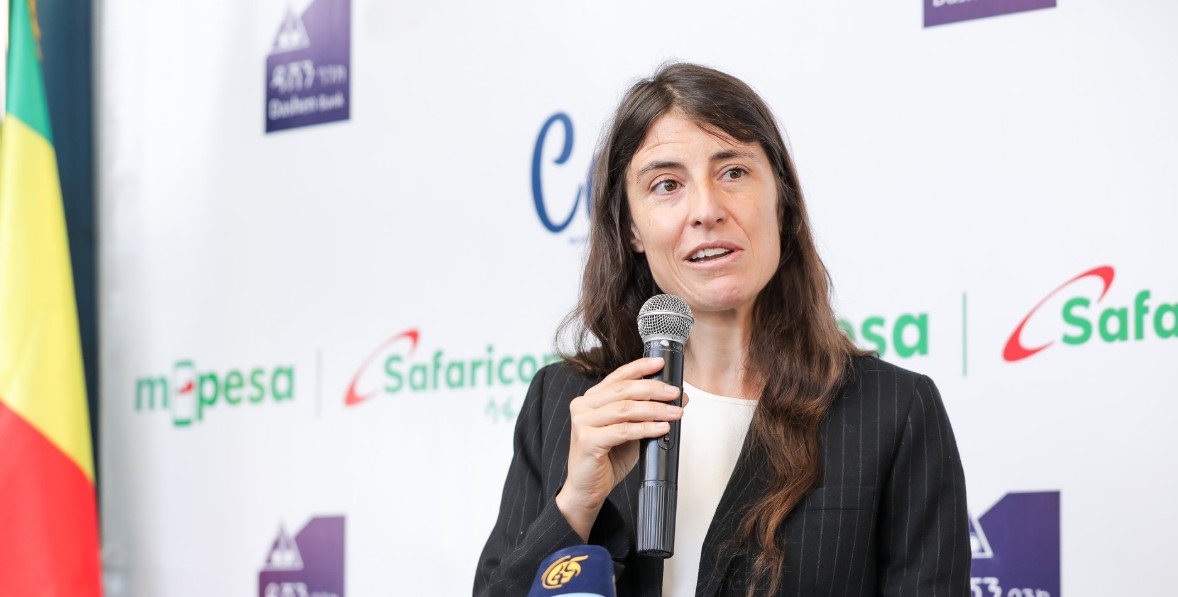Postal Corporation of Kenya unveils PostaPay app to boost mobile transactions

The app, which is compatible with all mobile wallets and banks in Kenya, already has at least 5,000 users and facilitated more than 21,000 successful transactions.
The Postal Corporation of Kenya (PCK) has unveiled PostaPay, a new mobile payment solution aimed at enhancing digital payments across the country.
The app, which is compatible with all mobile wallets and banks in Kenya, already has at least 5,000 users and facilitated more than 21,000 successful transactions.
More To Read
- Government unlocks Sh1.5 billion to rescue Postal Corporation of Kenya amid salary crisis
- Postal Corporation of Kenya on the brink of collapse amid Sh7.3 billion deficit, audit reveals
- Postal Corporation of Kenya on brink of collapse over Sh7.7 billion deficit, Auditor General warns
- Kenya moves towards digital addressing system with new Bill
- Posta Kenya increases Mpost charges for individuals, corporates
- Communications Authority puts illegal courier service operators on notice
The app supports a wide range of financial services, including payments via SasaPay, Airtel Money, M-Pesa, T-Kash, and various banking services, making it an inclusive and versatile platform for digital payments.
Joan Toroitich, the General Manager for Payment Services at PCK, noted the app's role in supporting Kenya's ongoing digital transformation.
Speaking during the PostaPay Sensitisation Workshop at the Ministry of Information, Communications, and the Digital Economy, Toroitich encouraged Kenyans to embrace the app, which is available for download on both the Play Store and the App Store using any existing SIM card line.
"PostaPay is a payment solution aimed at supporting the government's digital agenda and advancing efforts in digitisation," Toroitich said.
She urged government agencies and the private sector to adopt the platform for revenue collection and the payment of various government services.
Key features
PostaPay is designed to streamline digital transactions and make them more efficient and cost-effective.
The app enables users to send and receive money, pay bills, and buy airtime across multiple mobile networks.
Transactions on PostaPay are charged at affordable rates, ranging from 30 to 60 per cent lower than other mobile money services, while bill payments attract a minimal charge of 0.2 per cent.
One standout feature of PostaPay is the ability for users to operate multiple "sub-wallets" within the app.
This is particularly useful for individuals managing different financial needs, such as business transactions, group savings (chamas), or farming-related activities.
"Users of this app can operate at least five sub-wallets, such as for business, a chama group, or farming, among others," Toroitich added.
The app also offers Escrow services, which safeguard users' funds during transactions. Money is held in a suspense account until the purchased item is confirmed, providing a layer of security for both buyers and sellers.
The platform's benefits extend beyond individual users. PostaPay allows government agencies to collect and disburse funds efficiently, using a collection account and offering real-time reports, salary payments, and reconciliation.
Toroitich urged public institutions to consider integrating PostaPay into their financial systems to enhance transparency and reduce fraud.
"The app will help the government save costs and bring transparency, thereby eradicating fraud and misuse of government funds," she added.
Rysper Cherotich, the Manager for Payment Services at PCK, explained that PostaPay operates through three wallet categories: the Agency Module wallet, for withdrawals and deposits from agents; the Merchant Module wallet, for tills, pay bills, and disbursements; and the User Module, which allows individuals to send money, pay bills, and make purchases.
PostaPay is currently expanding its user base by conducting sensitization campaigns and recruiting merchants and agents across Kenya.
The app is also looking to partner with small and medium-sized enterprises (SMEs) to enable them to receive payments digitally and access business loans.
Cherotich shared that PostaPay plans to create 200 agents and onboard 100 dealers across the country. "We are creating awareness and onboarding merchants and agents who will be receiving payments," she said.
The development of PostaPay is a result of a partnership between the Postal Corporation of Kenya and a Payment Service Provider (PSP), reflecting the growing collaboration between public institutions and private sector partners to advance Kenya's digital economy.
Top Stories Today












































